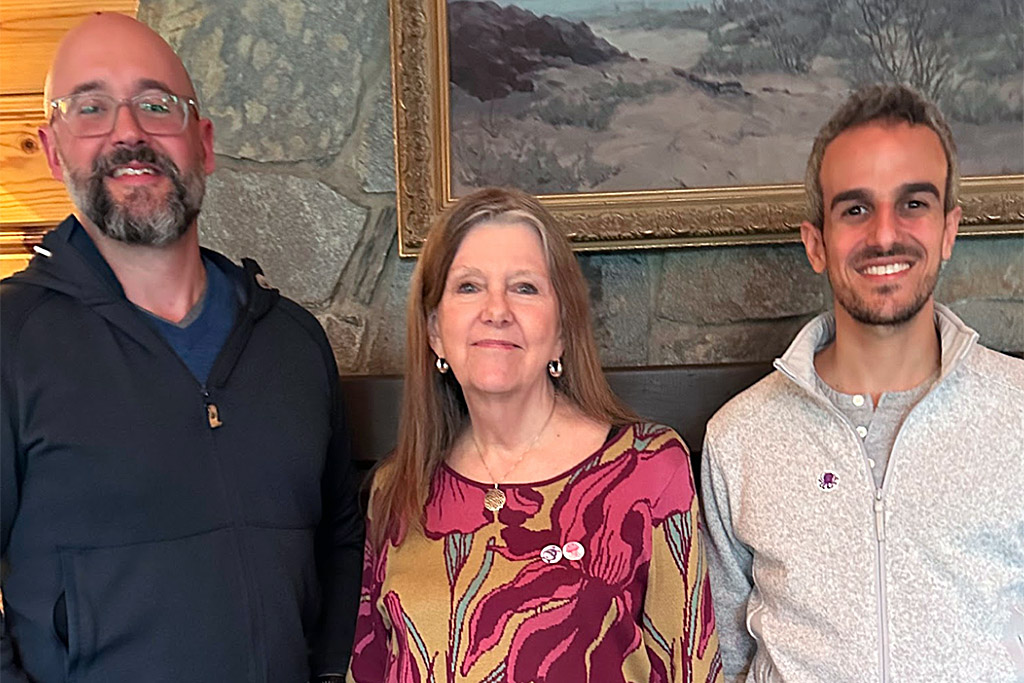March 12, 2024

Arguably the most far-reaching innovations underway in finance today are the ones that are hardest to see — the assembling of new digital infrastructure. New payments rails are being laid down. Banks are migrating to cloud computing and redesigning their IT systems, data architecture and process flows. And B2B connections are being entirely reimagined.
Today’s show looks at a key player in creating this new landscape. My guests are Itai Damti, the CEO of Unit, and Unit’s general counsel, Alex Acree, sharing their vision for what they call fintech 2.0.
Unit provides a technology layer that enables banks and fintech firms to connect to do things together. In our conversation, Itai argues that fintech 1.0 arose out of the financial crisis and mainly took the form of a B2C model that, in his view, is over as a top arena of innovation. He thinks the future lies, instead, in partnerships between banks and fintechs, enabled by technology that removes friction and, importantly, that focuses on regulatory compliance — getting it right, and making it easy by engineering it organically into everything that needs to be done.
Regular listeners know that I think banks and fintechs, broadly speaking, need each other, because they both have strengths and weaknesses, and these are highly complementary. For most, in fact, their biggest weakness is the very thing that the other type of firm can bring to them. Small and medium size financial institutions find it very hard to provide customers with world-class technology, especially in areas like user experience. Fintechs, being born digital, find that pretty easy, but struggle to create what banks have in terms of customer base and low-cost, stable funding. Plus, of course, most of them need to connect to the payments system, which they can’t do without a bank. Small banks risk competitive extinction if they can’t innovate, while fintechs risk stalling out if they can’t reach critical mass in market growth and affordable funding models. Business relationships that harness the best of both worlds for their customers can be a match made in heaven, driving everything from healthy market competition to financial inclusion.
Making that connection, however, is easier said than done, because most smaller banks also have aging “back office” technology that makes it cumbersome and costly to deploy partnerships and deploy digital age vendors.
That’s where companies like Unit come in, and Alex and Itai offer us a snapshot of what this transformation looks like. They explain the origin of Unit, why they designed it as a “technology operating system” for bank/fintech partnerships, and the structure of the legal relationship. They also talk extensively about their strategy of engineering regulatory compliance into everything. They note that their first two hires had compliance backgrounds (which is not the norm for fintechs!) I am someone who spent much of my career trying to help banks improve regulatory compliance performance and I know first hand how hard that is. it’s tantalizing to think about the possibilities that digital technology could usher in a new era where companies get it right, easily, because the machines are building it into every process. The businesses will benefit and more importantly, so will their customers.
Before we listen to Itai and Alex, let me share a side note. We recorded this session at a roundtable that occurs each winter in California. One of the regular participants is a retired deputy comptroller of the currency, and this year, he brought his family, including two little grandchildren. The girls’ parents were evidently teaching them about spending, saving and sharing, through a project that involved
the children giving away stickers. At most of the meals, these two little girls circulated among the tables distributing stickers depicting colorful shapes and cartoon creatures. The adults of course thanked them and duly donned these little decorations. The result was that, throughout the conference, most of the participants were wearing a changing array of stickers – stars, octopi, unicorns, bunnies, and such.
The meeting attendees represented the whole ecosystem of finance – banks, fintechs, regulators, consumer advocates, lawyers, economists – you name it. We were debating the weighty challenges that lie ahead for finance, coming from very different and often opposing perspectives. And yet here we were, all emblazoned with these little badges connecting us all in a funny, good hearted little community.
It struck me as a cheerful metaphor for what we’re going to need, in order to figure out the best way forward. We need to be building lots of good will, and common ground.

Itai has been building fintech companies since 2008 as a founder, investor and mentor. He founded Leverate and led its engineering team for 4 years, before taking the role of VP Products, building a product team that established the company as a market leader, offering data for 4000+ instruments, liquidity, risk management, compliance tools, CRMs and trading platforms in 20+ languages. In 2014, he moved to Hong Kong as CEO Asia Pacific. He is now based in New York.
Itai is a Special Advisor to Ion Pacific, a Hong Kong based investment bank, alongside Mr. David Adelman (formerly the 15th US Ambassador to Singapore) and Mr. John Tsang (formerly Hong Kong’s longest serving Financial Secretary).
Alex has spent his career at the intersection of technology, finance, and law as an attorney, advisor, and investor in financial services and other regulated industries. He has deep experience counseling banks on regulatory matters, guiding innovative technology companies through their lifecycles, and helping investment firms with the formation and management of private funds.
Prior to joining Unit, Alex was a partner at Mitchell Sandler, where he advised clients on a wide range of legislative, regulatory, transactional, and corporate governance matters.
Before that, he was Managing Director and General Counsel at Fenway Summer Ventures, where he served on the investment committee and invested in and advised fintech and regtech companies. Earlier in his career, he worked as a bank regulatory attorney at a global law firm. He serves as a director on the board of FinRegLab, a nonprofit innovation center.
We have exciting episodes ahead, including a special episode for Women’s History Month. We also will have a third-time conversation with Renaud Laplanche, and a conversation coming up with renowned tech ethicist Nell Watson. We also have a show planned with Simone di Castri and Matt Grasser from the Cambridge Centre for Alternative Finance SupTech Lab – and much more.
My AIR colleagues and I are also on the move at conferences. In March, my colleague Nitya Malladi will be speaking at the Women in Leadership Forum sponsored by California State University in Hayward, California. On a similar note, I’m honored to be speaking at the OCC for Women’s History Month. This event will be for OCC folks only, and I’m looking forward to it. I’ll be on a panel sharing some perspectives, including the perhaps unique one that I was the first-ever woman to serve as Deputy Comptroller of the Currency. I’m going to talk about how much the world has changed since then — and how much it hasn’t! At the end of the month I’ll also be participating in EmTech’s webinar on modernizing and digitizing central banking. More information to come on that soon.
In May my colleagues Shelley Anderson and Grace Mathebula will be at the 3i Africa Summit in Ghana. And in June, I will be at the ABA Regulatory Compliance Conference in Seattle.
If you enjoy Barefoot Innovation, it’s important to take a moment to leave us a five-star rating on your favorite podcast platform, to help us reach more people. Also please find me on social media to continue the conversation.
Stay informed by joining our mailing list
